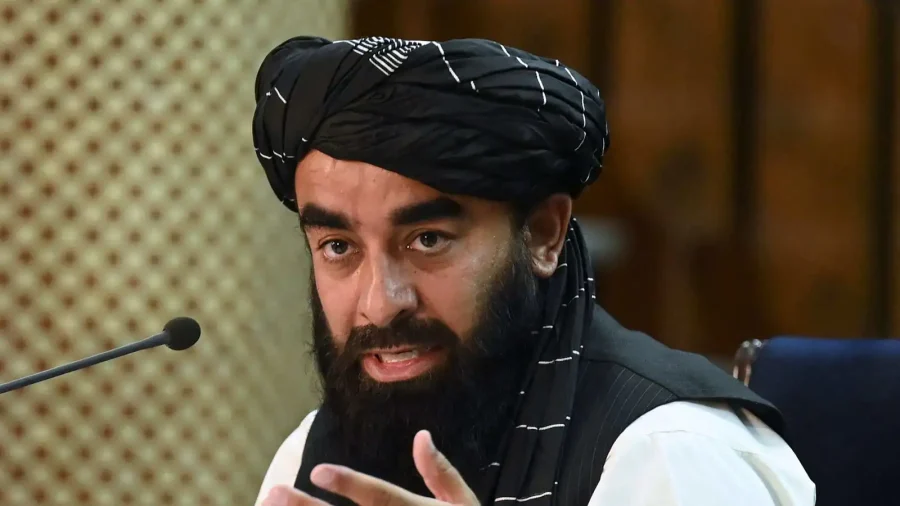Zabiullah Mujahid, the spokesman of the Islamic Emirate, reported a visit of Mawlawi Hibatullah Akhundzada, the leader of the Islamic Emirate, to Nimroz province.
Mujahid told TOLOnews that during this trip the leader of the Islamic Emirate met with religious scholars, elders, and residents of the province and heard their problems and demands.
“He assessed Nimroz’s state and closely observed government operations there. He said that the complaints of people should be carefully considered. In the area of service delivery, he provided guidelines. The trip was ended last night,” the spokesman said.
Meanwhile, some religious leaders and elders in Nimroz said that they had discussed the difficulties that the people of this province are currently facing, and the leader of the Islamic Emirate promised to address those challenges.
“I was sitting close to him. On behalf of the council of Ulema and influential people, I shared Nimroz’s difficulties with him, including those related to the Kamal Khan Dam, the center’s own issues with a shortage of water, storms, and other issues that haven’t yet received attention. We hope that with his arrival, a new page will be opened for the people of Nimroz,” said Subhanullah Sediqi, a member of the Provincial Ulema Council of Nimroz.
“We shared with him the issues that we have at the level of roads, hospitals, municipality and city cleanliness, traffic, and other problems in the water sector,” said Habibullah Rahimi, Khatib of Nimroz Jame Mosque.
According to some political analysts, this kind of trip of the senior officials of the Islamic Emirate is important for addressing people’s problems.
“There are many questions for people that the head of the Islamic Emirate is not actually present, or from the perspective of the politicians, there are rumors that people has less faith in him. It is good that he visits the provinces,” said Safiullah Arabzada.
Previously, the leader of the Islamic Emirate visited Uruzgan Province and ordered the officials of the province to address the challenges of the province based on Islamic Sharia.









